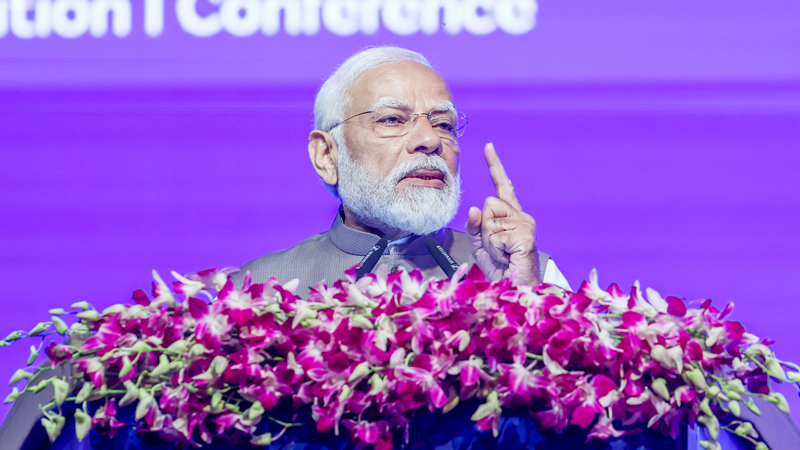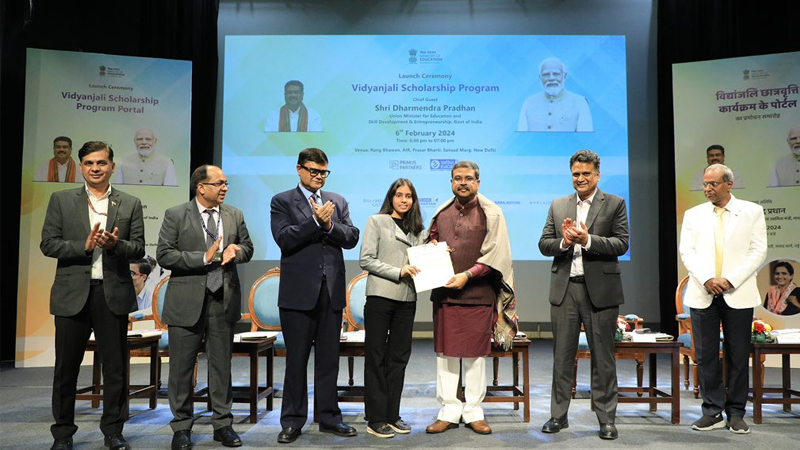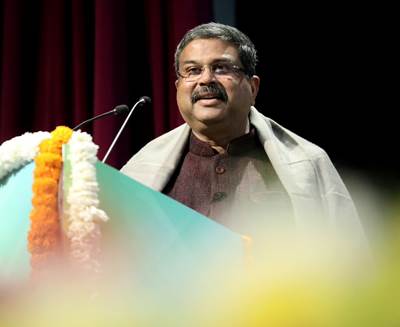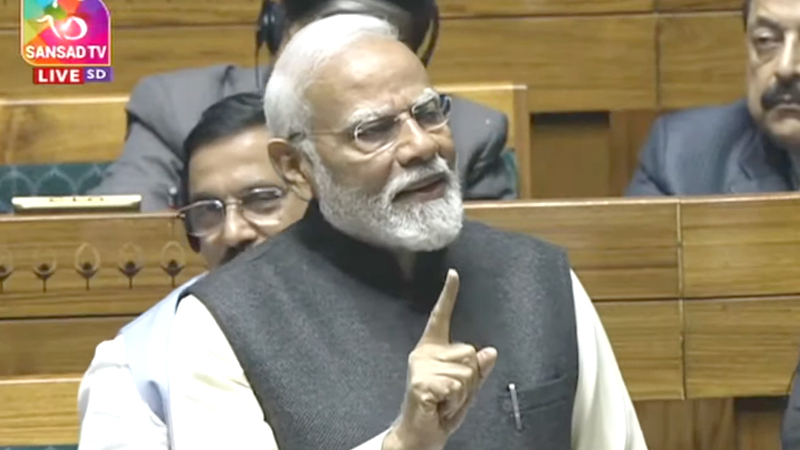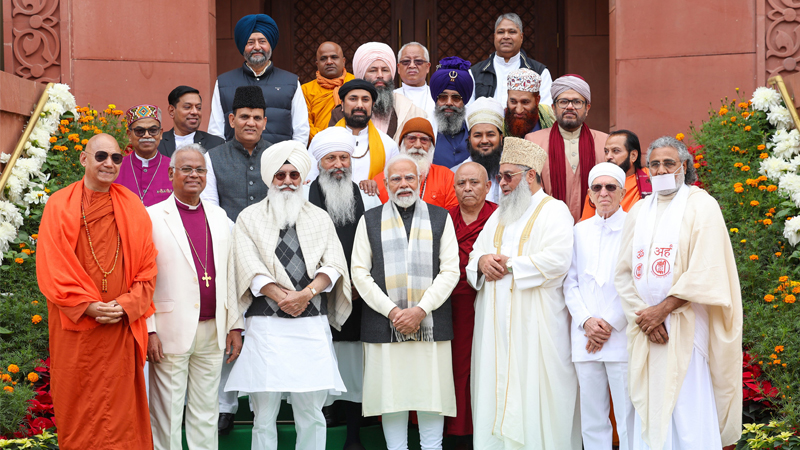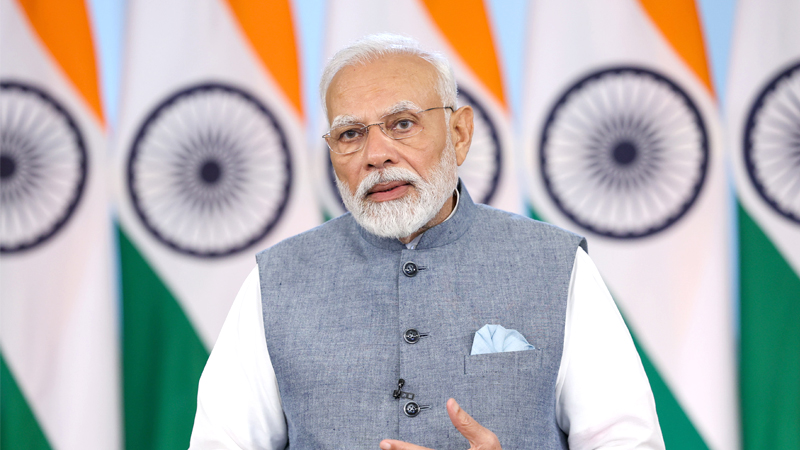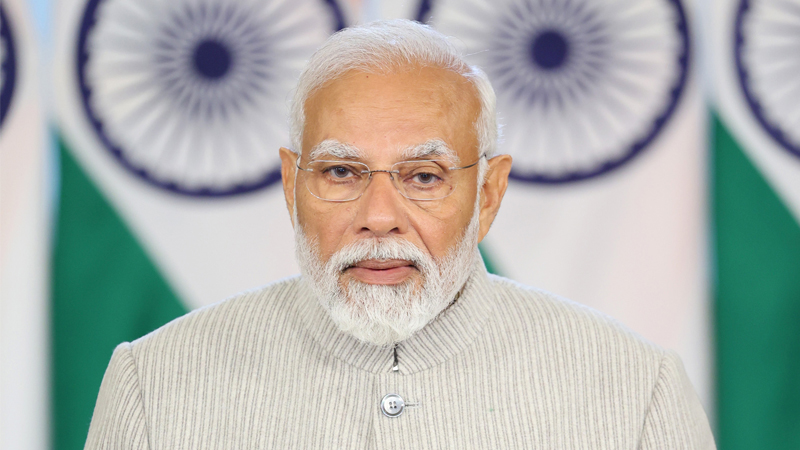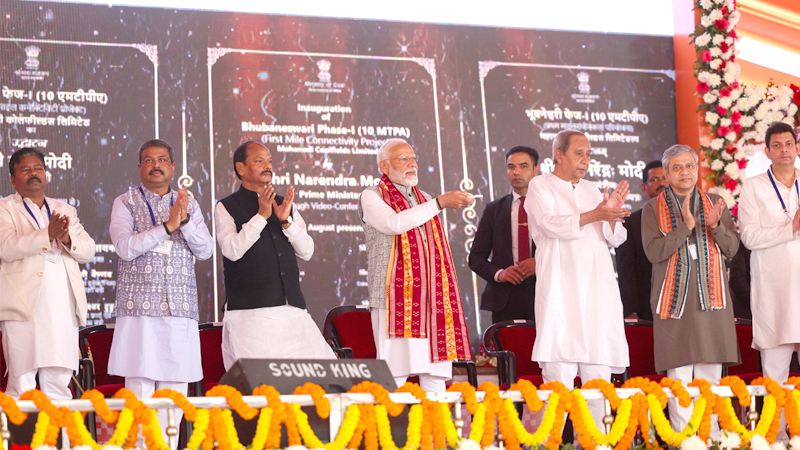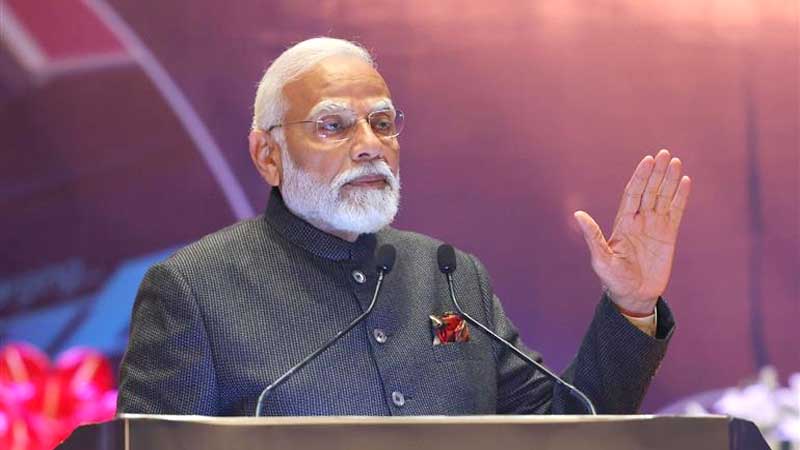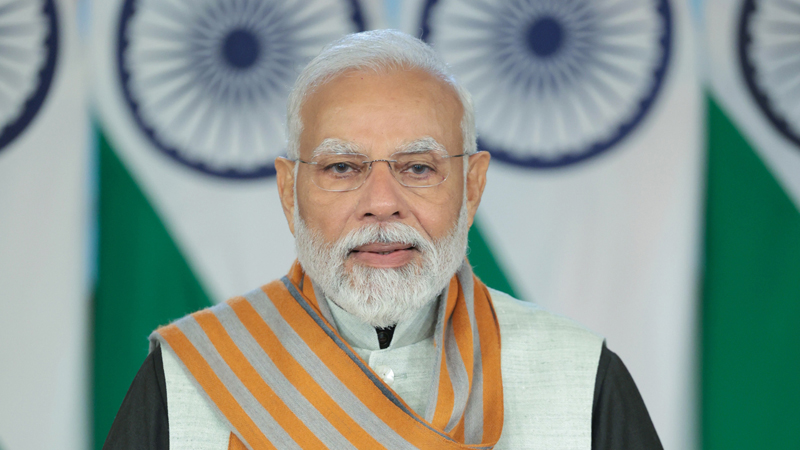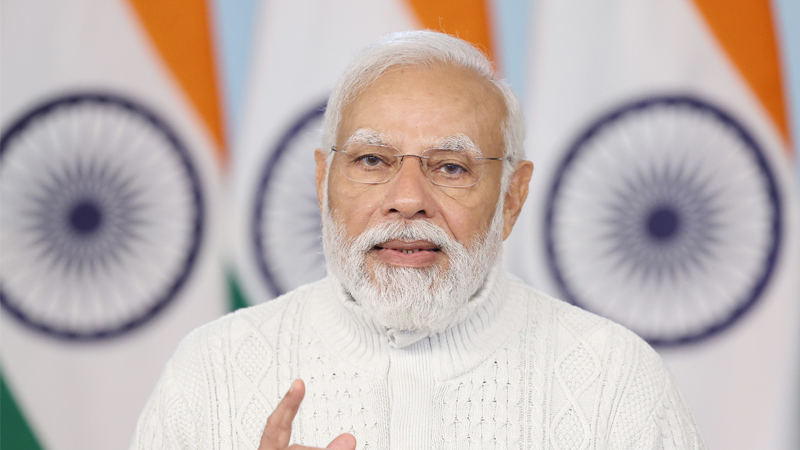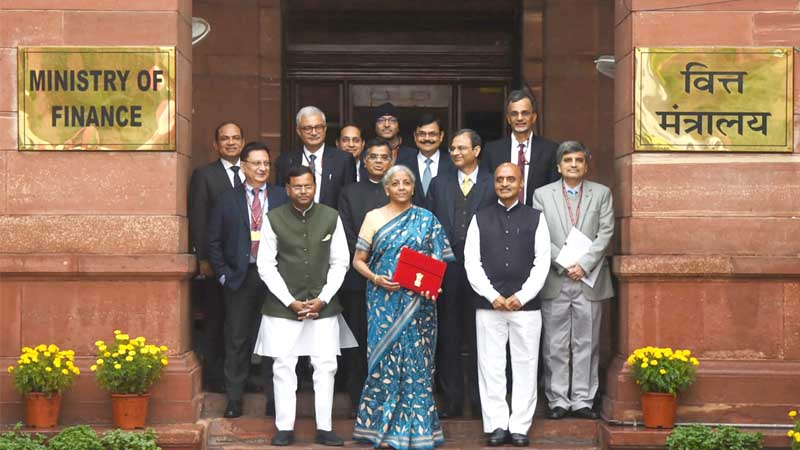The Prime Minister, Shri Narendra Modi inaugurated India Energy Week 2024 in Goa today. India Energy Week 2024 is India’s largest and only all-encompassing energy exhibition and conference, bringing together the entire energy value chain to catalyze India’s energy transition goals. The Prime Minister also held a roundtable with Global oil & gas CEOs and experts.
Addressing the gathering, the Prime Minister welcomed everyone to the second edition of India Energy Week. Expressing delight that the event is taking place in the energetic state of Goa, the Prime Minister said that it is known for its spirit of hospitality and the natural beauty and culture of the place leaves a profound impact on tourists from around the world. “Goa is touching new heights of development”, the Prime Minister said, underlining that it is the perfect destination for a discussion on a sustainable future and sensitivity towards the environment. He expressed confidence that the foreign guests who have gathered in Goa for India Energy Week 2024 will take along a lifetime memory of the state.
Noting that India Energy Week 2024 is taking place at a significant time period when India’s GDP rate crossed 7.5 percent in the first six months of the financial year, the Prime Minister said that the growth rate is higher than the global growth estimate making India the fastest growing economy in the world. He also mentioned the International Monetary Fund’s prediction of similar growth trends in the future. “Economic experts around the world believe that India will soon become the 3rd largest economy in the world”, Shri Modi said and emphasized the expanding scope of the energy sector in India’s growth story.
The Prime Minister noted that India is the world’s third largest energy, oil and LPG consumer. Furthermore, he said India is the fourth largest LNG importer and refiner along with the fourth largest automobile market. He also underlined rising demand of EV in the country. He also talked about the estimates of doubling of the nation’s energy demand by 2045. The Prime Minister elaborated India’s plan to meet this growing demand. Highlighting the efforts to ensure affordable fuel, the Prime Minister said that despite adverse global factors, India is among the few nations where petrol prices have come down and 100 per cent electricity coverage was achieved by electrifying crores of houses. “India is not just meeting its needs but is also determining the global direction”, the Prime Minister added.
Explaining the unprecedented infrastructure push, the Prime Minister mentioned 11 lakh crore rupees that the recent Budget pledged for infrastructure, a big part of which will go to the energy sector. This amount will create assets in railways, roadways, waterways, airways or housing which will need energy leading to India’s efforts to expand its energy capacity. He noted rising production of domestic gas due to the government’s reforms and the country is making efforts to take the percentage of gas in the primary energy mix from 6 to 15 percent. This will see an investment of about 67 billion dollars in the next 5-6 years, he informed.
Throwing light on the circular economy and concept of reuse being a part of India’s ancient traditions, the Prime Minister noted that the same is applicable for the energy sector. He said that this belief is symbolized by the Global BioFuel Alliance which brings together governments, organizations and industries from across the world on a single platform. Initiated during the G20 Summit held in India, the Prime Minister highlighted the holistic support received by the Alliance and informed about 22 nations and 12 international organizations coming onboard to encourage the use of biofuels in the world, while also creating economic opportunities worth $500 billion.
Highlighting India’s progress in the biofuel sector, Shri Modi informed about India’s rising adoption rate. He said that ethanol blending witnessed a significant rise from 1.5 percent in 2014 to 12 percent in 2023 leading to a reduction in carbon emissions by about 42 million metric tons. “Government has set a target of 20 percent ethanol blending in petrol by 2025”, he said. Recalling the initiation of 20 percent ethanol blending in more than 80 retail outlets during India Energy Week last year, PM Modi informed that the number of outlets has now increased to 9,000.
Outlining the government’s commitment to transforming rural economies through the Waste to Wealth Management model, the Prime Minister highlighted the government’s efforts towards sustainable development, Prime Minister Modi announced “we are working towards the installation of 5000 Compressed Biogas Plants in India.” Addressing global environmental concerns, Prime Minister Modi remarked, “despite being home to 17% of the world’s population, India’s Carbon Emission Share is only 4%.” He added, “We are committed to further improving our Energy Mix by focusing on the development of environmentally sensitive energy sources.” The Prime Minister reiterated India’s goal to achieve Net Zero Emissions by 2070.
Prime Minister Modi noted, “Today, India ranks fourth in the world in Renewable Energy Installed Capacity.” 40 percent of India’s installed capacity comes from non-fossil fuels. Highlighting the nation’s progress in solar energy, Prime Minister Modi stated, “In the past decade, India’s Solar Energy Installed Capacity has grown by more than 20 times.” He added, “The campaign to connect with Solar Energy is gaining momentum in India.”
Prime Minister Modi noted that the launch of a major mission aimed at installing Solar Rooftop Panels in one crore homes across India, will not only make one crore families self-reliant in the energy sector but also establish mechanisms to deliver excess electricity generated directly to the grid. Prime Minister Modi emphasized the transformative impact of these initiatives. “There is a great potential for investment in the entire Solar Value Chain”, he added.
Touching upon India’s stride in the green hydrogen sector, the Prime Minister highlighted the National Green Hydrogen Mission which will pave the way for India becoming a center of hydrogen production and export. He expressed confidence that India’s green energy sector can make both investors and industries a sure shot winner.
The India Energy Week event reflects India’s commitment to global cooperation in the energy sector. Prime Minister Modi remarked, “The India Energy Week event is not just India’s event but a reflection of ‘India with the world and India for the world’ sentiment.”
He encouraged collaboration and knowledge sharing in sustainable energy development, stating, “Let us learn from each other, collaborate on cutting-edge technologies, and explore avenues for sustainable energy development.”
In conclusion, Prime Minister Modi expressed optimism about building a prosperous future that prioritizes environmental conservation. He stated, “Together, we can build a future that is prosperous and environmentally sustainable.”
Governor of Goa, Shri P S Sreedharan Pillai, Chief Minister of Goa, Shri Pramod Sawant, Union Minister for Petroleum and Natural Gas, Shri Hardeep Singh Puri and Union Minister of State for Petroleum, Oil and Natural Gas, Shri Rameswar Teli were present on the occasion among others.
Background
Achieving Aatmanirbharta in energy requirements has been a key focus area of the Prime Minister. In yet another step in this direction, India Energy Week 2024 is being held from 6 – 9 February in Goa and is India’s largest and only all-encompassing energy exhibition and conference, bringing together the entire energy value chain, and will serve as a catalyst for India’s energy transition goals. The Prime Minister also held a roundtable with Global oil & gas CEOs and experts.
Encouraging and fostering startups and integrating them into the energy value chain will be an important focus for India Energy Week 2024. It is expected to witness the participation of around 17 Energy ministers from different countries, 35,000+ attendees and more than 900 exhibitors. It will have six dedicated country pavilions – Canada, Germany, Netherlands, Russia, the UK and the USA. A special Make in India Pavilion is also being organized to showcase innovative solutions which Indian MSMEs are spearheading in the energy sector.


